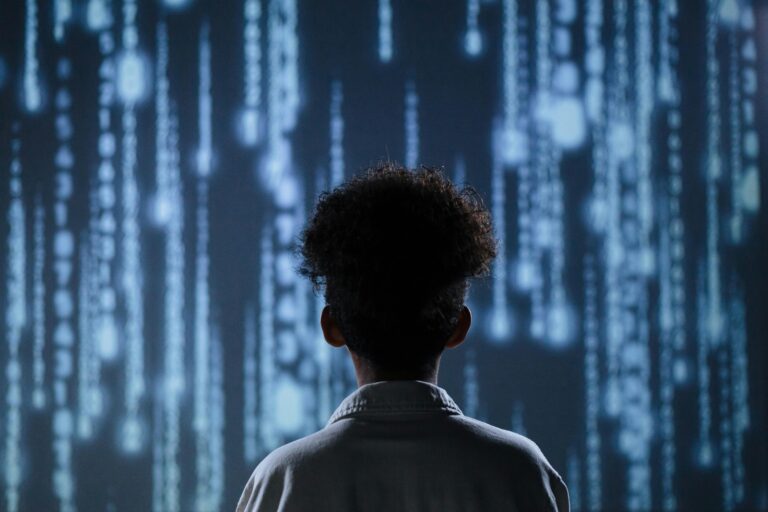We have previously covered how artificial intelligence (AI) is changing energy consumption and being used in scams. Today, we’re exploring another topic where the use of AI is raising questions for businesses – copyrighted works.
Concerns over AI as it relates to copyright have been reignited with the “Ghiblification” trend that went viral online at the end of March. In this trend, users were able to utilize OpenAI’s new image generator GPT‑4o to create an image in the signature art style of Hayao Miyazaki, founder of the Japanese animation studio Studio Ghibli.
This is one of many instances of controversial AI usage that questions how we can respect creators and compensate them for their work while still embracing new technology as it develops. So far, it’s been a thin line, and a lot of money hangs in the balance.
“An insult to life itself”
Many joined the “Ghiblification” trend, including OpenAI CEO Sam Altman, who changed his profile picture on X (formerly Twitter) to one of the generated images. Although many had fun with the trend, others denounced it as unethical. A clip from the 2016 documentary Never-Ending Man began recirculating where, in response to the use of AI, Miyazaki states, “I would never wish to incorporate this technology into my work at all. I strongly feel it is an insult to life itself.”
Techcrunch spoke to an intellectual property lawyer about the trend, who noted that copyright does not explicitly protect style, so “OpenAI does not appear to be breaking the law simply by generating images that look like Studio Ghibli movies.” However, in order to achieve the likeness of the style in the first place the model likely would have been trained on frames from Studio Ghibli’s many animated films that have been uploaded to the internet over the years. This raises the question that experts have been trying to answer for years: Does it fall under copyright protection, or is it fair use?
Lobbying for fair use
For AI models to be trained, they have to be fed massive amounts of data. In a statement to the U.K. Parliament last year, OpenAI wrote: “It would be impossible to train today’s leading AI models without using copyrighted materials.”
Currently, OpenAI and Google are lobbying the U.S. government to loosen current copyright restrictions and allow the training of AI models on copyrighted material to be classified as “fair use.” The companies submitted policy proposals last month in response to the AI Action Plan, where they positioned the request as essential to ensure the U.S. does not fall behind other countries in technological advancement and national security. Other countries have different restrictions of varying rigidity that may allow those countries to pull ahead (or fall further behind).
OpenAI is working to transition into a for-profit business and, according to CNBC, the organization’s revenue is expected to triple to $12.7 billion this year. OpenAI has recently increased its expenditure on lobbying, with $1.76 million spent in 2024, up from $260,000 in 2023. Alphabet Inc, the parent company of Google, spent $14.79 million on lobbying last year. Meta surpasses both companies, breaking into the top ten of lobbying organizations with $24.43 million spent in 2024.
How creatives have responded
Artists, authors, actors, musicians and other creatives are often neither asked for consent nor compensated for their work when it is used to train AI models. Usually, the use of their work is not openly disclosed either. This has resulted in creative acts of protest and numerous lawsuits.
The New York Times and other publications brought a copyright lawsuit against OpenAI and Microsoft in 2023 for using their articles to train ChatGPT models. While OpenAI has maintained that this falls under the “fair use” doctrine and requested that the case be dismissed, a federal judge ruled last month that the case would be allowed to move forward.
Meta is currently facing lawsuits from The Authors Guild, three French publishers, and other writers for using pirated versions of “millions of books” to train their AI model Llama without permission. Meta has maintained that they believe this should qualify as “fair use”. Music publishers sued Anthropic for using at least 500 copyrighted songs in the training of their AI chatbot Claude. These are just a couple of the many lawsuits currently taking place.
One case in the literary world may provide some insight into how those cases could go: A recent agreement between HarperCollins and Microsoft resulted in Microsoft being called to pay a fee of “$5,000 per title, split 50-50 between the author and HarperCollins,” which will allow for the data to be used for three years.
For many, it seems that the legal action is not meant to hinder technological progress but rather to advocate for fair compensation. An open letter last month to the Trump administration from over 400 entertainment industry workers and prominent figures stated: “AI companies can use our copyrighted material by simply doing what the law requires: negotiating appropriate licenses with copyright holders — just as every other industry does.”







